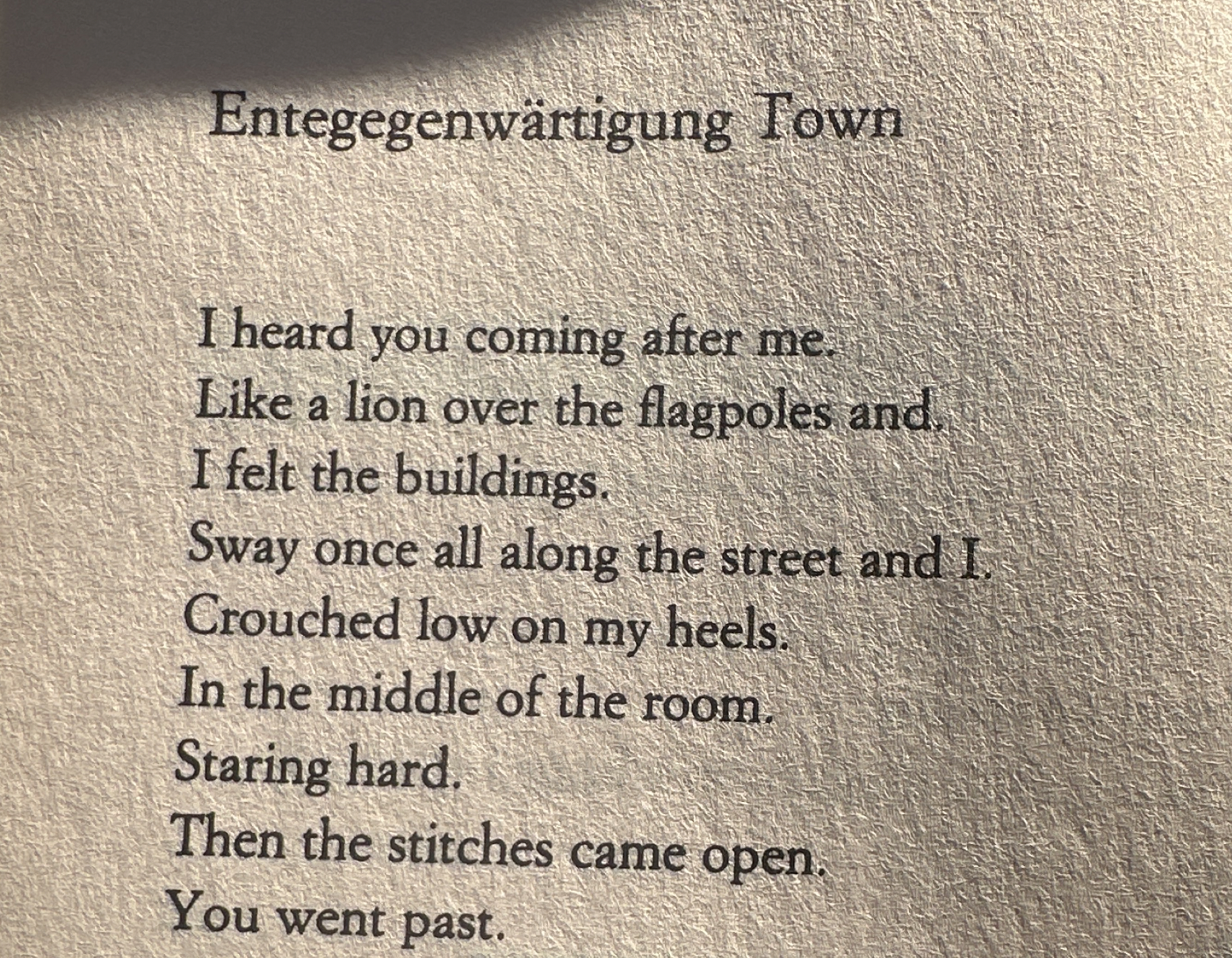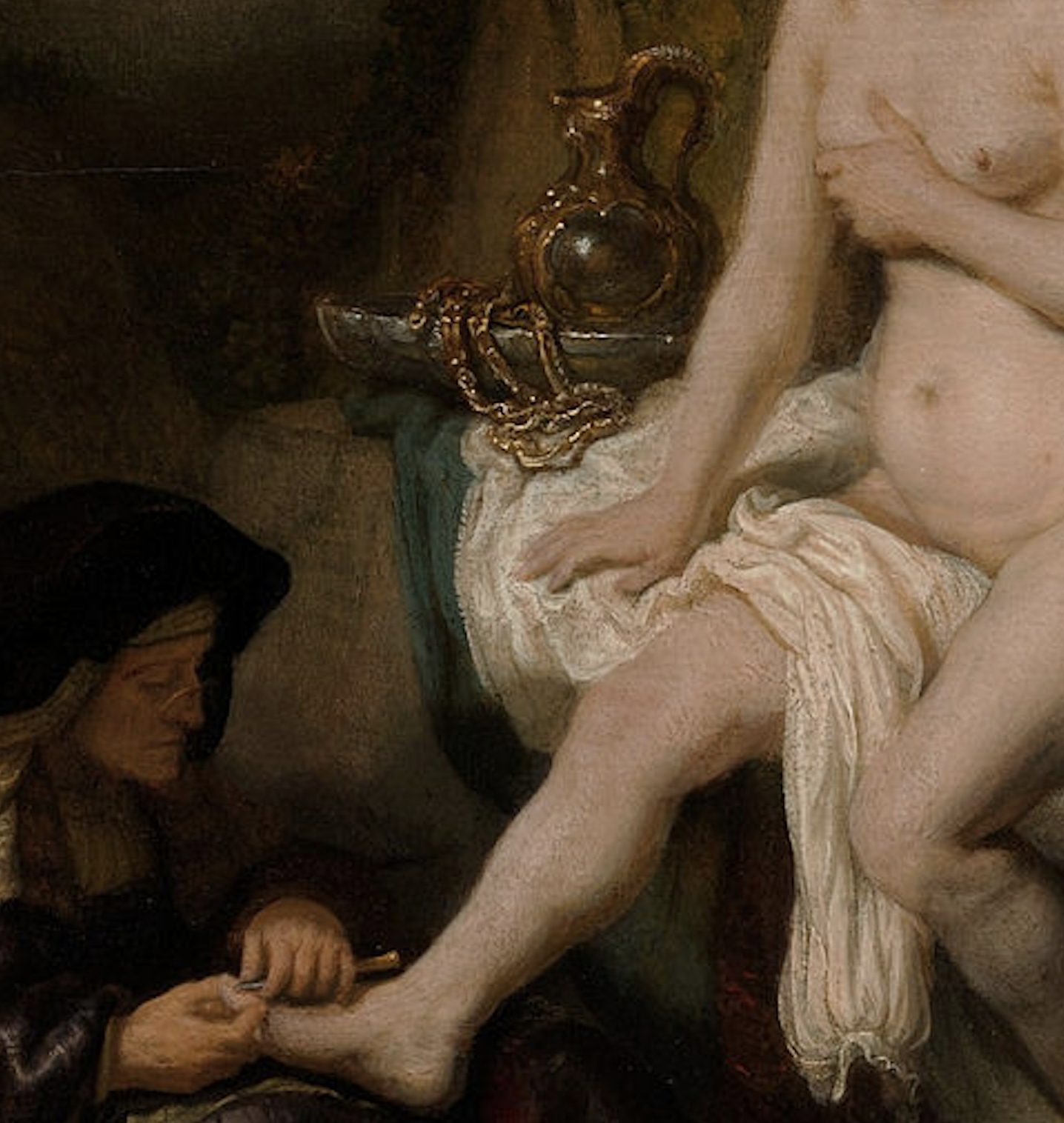“Introduction” to The Life of Towns
Towns are the illusion that things hang together somehow, my pear, your winter.
I am a scholar of towns, let God commend that. To explain what I do is simple enough. A scholar is someone who takes a position. From which position, certain lines become visible. You will at first think I am painting the lines myself; it's not so. I merely know where to stand to see the lines that are there. And the mysterious thing, it is a very mysterious thing, is how these lines do paint themselves. Before there were any edges or angles or virtue— who was there to ask the questions? Well, let's not get carried away with exegesis. A scholar is someone who knows how to limit himself to the matter at hand.
Matter which has painted itself within lines constitutes a town. Viewed in this way the world is, as we say, an open book. But what about variant readings? For example, consider the town defined for us by Lao Tzu in the twenty-third chapter of the Tao Te Ching:
A man of the way conforms to the way; a man of virtue conforms to virtue; a man of loss conforms to loss. He who conforms to the way is gladly accepted by the way; he who conforms to virtue is gladly accepted by virtue; he who conforms to loss is gladly accepted by loss.
This sounds like a town of some importance, where a person could reach beyond himself, or meet himself, as he chose.
But another scholar (Kao) takes a different position on the Town of Lao Tzu. “The word translated 'loss' throughout this section does not make much sense,” admonishes Kao. “It is possible that it is a graphic error for 'heaven.'” Now, in order for you or me to quit living here and go there-either to the Town of Lao Tzu or to the Town of Kao—we have to get certain details clear, like Kao's tone. Is he impatient or deeply sad or merely droll? The position you take on this may pull you separate from me. Hence, towns. And then, scholars.
I am not being trivial. Your separateness could kill you unless I take it from you as a sickness. What if you get stranded in the town where pears and winter are variants for one another? Can you eat winter? No. Can you live six months inside a frozen pear? No. But there is a place, I know the place, where you will stand and see pear and winter side by side as walls stand by silence. Can you punctuate yourself as silence? You will see the edges cut away from you, back into a world of another kind— back into real emptiness, some would say. Well, we are objects in a wind that stopped, is my view. There are regular towns and irregular towns, there are wounded towns and sober towns and fiercely remembered towns, there are useless but passionate towns that battle on, there are towns where the snow slides from the roofs of the houses with such force that victims are killed, but there are no empty town (just empty scholars) and there is no regret. Now move along.
— Anne Carson
Town of the Sound of a Twig Breaking
Their faces I thought were knives.
The way they pointed them at me.
And waited.
A hunter is someone who listens.
So hard to his prey it pulls the weapon.
Out of his hand and impales.
Itself.
Memory Town
In each one of you I paint.
I find.
A buried site of radioactive material.
You think 8 miles down is enough?
15 miles?
140 miles?
Detail from Rembrandt’sThe Toilet of Bathsheba, 1643.
Town of Bathsheba's Crossing
Inside a room in Amsterdam.
Rembrandt painted a drop of life inside.
The drop he painted Rembrandt's stranger.
Dressed as a woman rippling.
With nakedness she has.
A letter in her hand she is.
Traveling.
Out of a thought toward us.
Her foam arrives.
Before her even when he.
Paints Rembrandt's stranger.
As Rembrandt he shows.
Him bewildered and tousled.
As if just in.
From journeys.
On tracks and side roads.
Lower portion of Rembrandt’s A Woman Bathing in a Stream, 1655.
Pushkin Town
It has rules.
And love.
And the first rule is.
The love of chance.
Some words of yours are very probably ore there.
Or will be by the time our eyes are ember.
Town of the Death of Sin
What is sin?
You asked.
The moon stung past us.
All at once I saw you.
Just drop sin and go.
Black as a wind over the forest.
Hölderlin Town
You are mad to mourn alone.
With the wells gone dry.
Starlight lying at the bottom.
Like a piece of sound.
Props hurtle past you.
Town of Uneven Love
(But All Love Is Uneven)
If he had loved me he would have seen me.
At an upstairs window brow beating against the glass.
Judas Town
Not a late hour not unlit rows.
Not olive trees not locks not heart.
Not moon not dark wood.
Not morsel not I.
*
Anne Carson, Plainwater: Essays and Poetry
Claude Debussy, La plus que lente, L. 121 performed by Daniel Barenboim


